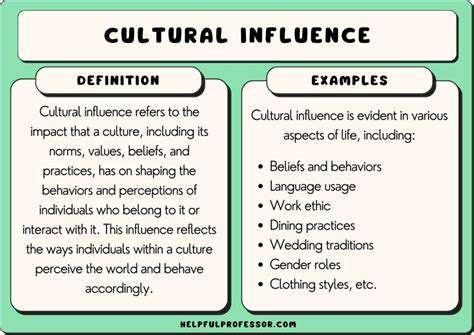The Multi-Dimensional Nature of Social Issues
The Role of Economic Factors
Economic factors play a significant role in shaping social issues. Poverty, unemployment, and inequality directly impact people's quality of life and their ability to access basic services. Regions with high unemployment rates often face increased crime and social unrest, as individuals struggle to provide for their families.
Economic stability is crucial for fostering a healthy society. When people have stable jobs and fair wages, they are more likely to invest in their communities, leading to improved social outcomes. Initiatives aimed at promoting job creation and skills training can help alleviate some of these issues.
Furthermore, government policies that focus on economic equity can reduce disparities, allowing individuals from marginalized backgrounds to thrive. Social safety nets, such as unemployment benefits and welfare programs, also serve to buffer against the worst effects of economic downturns and systemic inequalities.
The Impact of Education
Education is another fundamental aspect influencing social issues. Access to quality education can lift individuals out of poverty and equip them with the necessary skills to navigate the workforce. Inequities in the education system often reflect broader societal issues, such as racial and economic disparities.
Furthermore, educational attainment is linked to various social outcomes, including health and civic engagement. Individuals with higher levels of education are typically more involved in their communities, engage in political processes, and contribute to societal development.
Investing in education, particularly in underserved areas, is vital for addressing long-term social issues. Programs that offer scholarships, mentorship, and resources for students from disadvantaged backgrounds can help level the playing field and create a more equitable society.
Cultural and Social Norms
Cultural attitudes and social norms significantly influence behavior and perceptions related to social issues. Societal views on race, gender, and sexuality, for instance, can either perpetuate discrimination or promote inclusivity. Understanding these cultural dynamics is essential for addressing social inequities effectively.
In many cases, entrenched stereotypes and biases can hinder individuals' opportunities and outcomes, contributing to ongoing cycles of disadvantage. Initiatives aimed at changing public perception and promoting diversity can help combat these negative influences.
Moreover, community engagement and dialogue can play a pivotal role in shifting cultural norms. By fostering an environment that values empathy, respect, and inclusion, we can create communities that are more resilient and better equipped to address social issues collaboratively.
Policies and Governance
Effective governance and policies are foundational to tackling social issues. Governments play a crucial role in creating and enforcing laws that protect citizens' rights and promote social welfare. Well-crafted policies that address the root causes of social issues can lead to sustainable improvements in people's lives.
Additionally, collaborative governance involving multiple stakeholders—such as non-profits, community organizations, and private sectors—can enhance policy effectiveness. Engaging diverse perspectives leads to a more comprehensive understanding of the challenges faced and promotes inclusive solutions.
Transparency and accountability in governance are also critical. Citizens must feel empowered to advocate for their rights and hold leaders accountable. Participatory governance models encourage citizen engagement and ensure that policies reflect the needs and desires of the community.
The Influence of Technology
Technology is transforming social interaction and can both alleviate and exacerbate social issues. Access to technology has the potential to bridge gaps in education and employment, providing individuals with new opportunities and resources. However, the digital divide remains a critical barrier for many, limiting their ability to fully participate in the modern economy.
Moreover, social media platforms can serve as powerful tools for advocacy and awareness, amplifying marginalized voices and enabling grassroots movements. They allow individuals to connect, share information, and rally support for critical issues, fostering a sense of community and solidarity.
Conversely, technology can also contribute to social challenges such as misinformation, cyberbullying, and privacy concerns. It is essential to develop digital literacy programs and promote responsible usage of technology to harness its potential while mitigating negative impacts on society.
The Role of Historical Context

The Influence of Historical Events
Historical events shape societal norms and attitudes, deeply influencing how social issues are perceived.
For example, the civil rights movement in the United States was not just a significant historical event but also a catalyst for ongoing discussions about race relations. Understanding these events is critical for comprehending current social dynamics.
Socioeconomic Factors
The socioeconomic background of individuals and communities plays a crucial role in social issues.
Poverty, education levels, and employment opportunities significantly affect access to resources and services, leading to systemic inequalities. By examining these factors, we can better address the root causes of various social problems.
Cultural Influences and Beliefs
Cultural values and beliefs can either perpetuate social issues or promote solutions.
Different communities may have varying perspectives on issues like gender equality and healthcare access, which underscores the importance of cultural sensitivity in social work and policy-making.
Political Climate and Legislation
The political environment profoundly affects the development and implementation of policies addressing social issues.
Legislation can either reinforce existing structures of inequality or serve as a tool for systemic change and equality. A thorough understanding of the political landscape is essential for effective advocacy and reform efforts.
Economic Factors as Catalysts

Impact of Poverty on Social Dynamics
Poverty is one of the most significant economic factors that can lead to various social issues. When individuals lack financial resources, they may resort to crime, struggle with mental health issues, and face barriers in accessing education.
Children growing up in impoverished conditions are particularly vulnerable; they often lack proper nutrition, healthcare, and educational support, which can perpetuate a cycle of poverty. This cyclical nature makes it increasingly difficult for families to break free from these economic constraints.
Unemployment and Its Social Repercussions
High unemployment rates can trigger a host of social issues, including increased crime rates and social unrest. When people are unable to find work, a sense of hopelessness can set in, leading to frustration and potentially destructive behavior.
The lack of employment opportunities often disproportionately affects marginalized groups, exacerbating existing inequalities in society. Communities struggling with high unemployment may face a breakdown of social cohesion, leading to a less stable environment overall.
Influence of Economic Inequality on Social Stability
Economic inequality creates divisions within society that can lead to tension and conflict. When wealth is concentrated in the hands of a few, it can foster resentment among those who feel marginalized and excluded from economic opportunities.
This disparity can undermine trust in institutions and foster a belief that the system is rigged against the average person. Efforts to reduce economic inequalities can have a profound impact on improving social cohesion and stability within communities.
Cultural Influences and Perceptions

Cultural Norms and Values
Cultural norms and values play a significant role in shaping societal attitudes and behaviors. Different cultures prioritize different values, which can lead to varied perceptions of social issues.
For instance, in some cultures, individualism is valued more highly than collectivism, leading to differing views on community support and social welfare. Understanding these cultural differences is essential when addressing social issues globally.
Media Representation and Impact
The media is a powerful tool that influences public perception of social issues. Through the portrayal of events, groups, and ideologies, media outlets can shape societal attitudes significantly.
For example, biased or skewed representations can perpetuate stereotypes and exacerbate social tensions. Therefore, it is crucial to critically analyze media content when exploring the public's understanding of social issues.
Historical Context and Legacy
Historical events and contexts have a profound impact on current social issues. Many social challenges are deeply rooted in history, which shapes contemporary perceptions and responses.
The legacy of past injustices, such as colonialism and discrimination, often influences modern societal dynamics. Thus, acknowledging historical context is essential for effectively addressing and resolving ongoing social problems.
Strategic Interventions for Lasting Change
Understanding the Root Causes of Social Issues
Effective solutions to social issues begin with a deep understanding of their root causes. These factors can be socio-economic, political, or cultural in nature, and often intersect in complex ways. For example, poverty can lead to various social issues, including crime, lack of education, and health disparities. By targeting these underlying factors, interventions can be more effectively tailored to create lasting change.
Analyzing data and engaging with affected communities are vital steps in uncovering these root causes. This involves gathering qualitative and quantitative data to understand the lived experiences of individuals. Such an approach ensures that interventions are grounded in reality and addresses the needs and priorities of those most impacted by social issues.
Designing Inclusive Strategies
Strategic interventions must prioritize inclusivity, ensuring that a diverse range of perspectives is represented in the planning process. It is essential to engage stakeholders at every level, including community members, local organizations, and policy makers. This collaborative approach fosters a sense of ownership among participants, which increases the likelihood of sustained commitment to the intervention's goals.
Moreover, these strategies should be adaptable to different contexts and communities. What works in one setting may not be effective in another, so flexibility in strategy design is crucial. This can involve piloting programs in smaller communities before scaling them up, allowing for necessary adjustments based on feedback and observed outcomes.
Measuring Impact and Ensuring Sustainability
To assess the effectiveness of interventions, it is essential to establish clear metrics and indicators of success. Continuous evaluation allows organizations to measure progress and identify areas needing adjustment. This ongoing assessment informs future strategies and ensures that resources are used efficiently. Regular feedback loops help maintain accountability to stakeholders and the communities served.
Finally, sustainability must be embedded in the intervention strategy from the beginning. This includes securing long-term funding, building community capacity, and ensuring that local infrastructures are in place to support ongoing efforts. By fostering community ownership and resilience, interventions can leave a lasting positive impact even after external support has diminished.